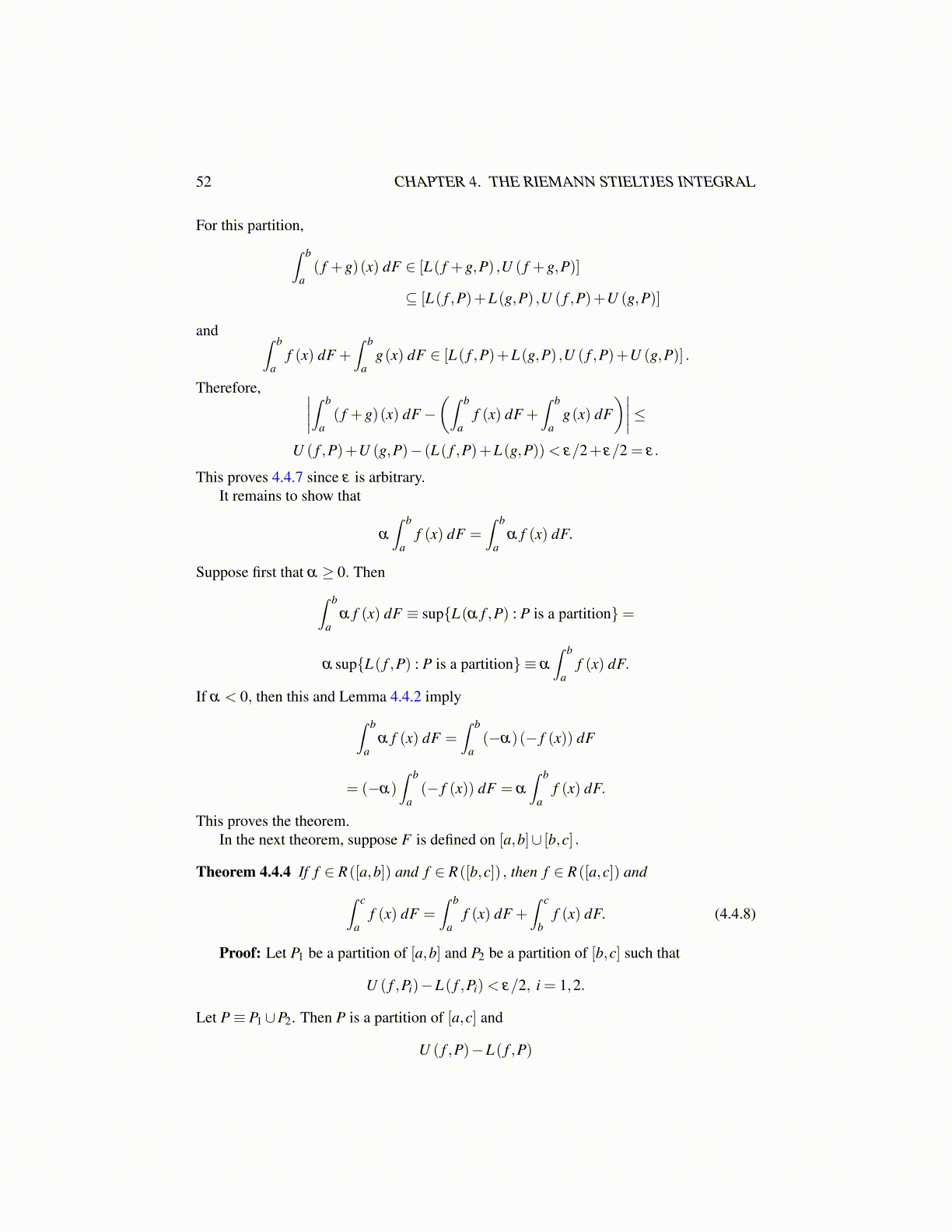
52 CHAPTER 4. THE RIEMANN STIELTJES INTEGRAL
For this partition,∫ b
a( f +g)(x) dF ∈ [L( f +g,P) ,U ( f +g,P)]
⊆ [L( f ,P)+L(g,P) ,U ( f ,P)+U (g,P)]
and ∫ b
af (x) dF +
∫ b
ag(x) dF ∈ [L( f ,P)+L(g,P) ,U ( f ,P)+U (g,P)] .
Therefore, ∣∣∣∣∫ b
a( f +g)(x) dF−
(∫ b
af (x) dF +
∫ b
ag(x) dF
)∣∣∣∣≤U ( f ,P)+U (g,P)− (L( f ,P)+L(g,P))< ε/2+ ε/2 = ε.
This proves 4.4.7 since ε is arbitrary.It remains to show that
α
∫ b
af (x) dF =
∫ b
aα f (x) dF.
Suppose first that α ≥ 0. Then∫ b
aα f (x) dF ≡ sup{L(α f ,P) : P is a partition}=
α sup{L( f ,P) : P is a partition} ≡ α
∫ b
af (x) dF.
If α < 0, then this and Lemma 4.4.2 imply∫ b
aα f (x) dF =
∫ b
a(−α)(− f (x)) dF
= (−α)∫ b
a(− f (x)) dF = α
∫ b
af (x) dF.
This proves the theorem.In the next theorem, suppose F is defined on [a,b]∪ [b,c] .
Theorem 4.4.4 If f ∈ R([a,b]) and f ∈ R([b,c]) , then f ∈ R([a,c]) and∫ c
af (x) dF =
∫ b
af (x) dF +
∫ c
bf (x) dF. (4.4.8)
Proof: Let P1 be a partition of [a,b] and P2 be a partition of [b,c] such that
U ( f ,Pi)−L( f ,Pi)< ε/2, i = 1,2.
Let P≡ P1∪P2. Then P is a partition of [a,c] and
U ( f ,P)−L( f ,P)